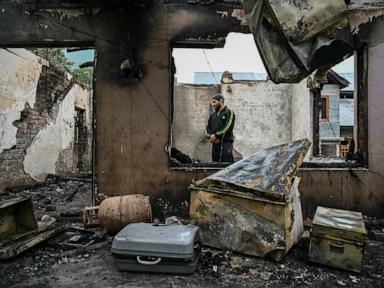The conflict between India and Pakistan over Kashmir is a long-standing and complex issue rooted in the partition of British India in 1947. The partition created a Muslim-majority Pakistan and a Hindu-majority India, and the regions of Jammu and Kashmir were given the opportunity to choose which country to join. However, the Maharaja of Kashmir initially sought independence.
In October 1947, Pakistani tribal militias invaded Kashmir, leading the Maharaja to request assistance from India. In return for India's help, the Maharaja agreed to join India. This triggered the first Indo-Pakistani War. The war ended in 1948 with a UN-mediated ceasefire, dividing Kashmir between India and Pakistan. The ceasefire line was eventually named the Line of Control (LoC).
Key Points of Contention
- Conflicting Claims: Both India and Pakistan claim the entire region of Kashmir. India's claim is based on the Instrument of Accession signed by the Maharaja in 1947. Pakistan claims the region based on its Muslim-majority population and geographical proximity.
- Self-determination: Pakistan supports the right of the Kashmiri people to self-determination through a plebiscite, in accordance with UN resolutions. India, however, has obstructed attempts to hold a plebiscite.
- Indian Administration: India controls approximately 55% of the land area of the region, including Jammu, the Kashmir Valley, most of Ladakh, and the Siachen Glacier. Pakistan controls approximately 30% of the land area, including Azad Kashmir and Gilgit-Baltistan. China controls the remaining 15% of the land area, including Aksai Chin.
- Insurgency: In 1989, an armed insurgency erupted against Indian rule in Indian-administered Kashmir, fueled by political disenfranchisement and alleged support from Pakistan. India accuses Pakistan of supporting and training separatist groups. Pakistan denies these allegations, stating that it only provides moral and diplomatic support.
Escalation and Recent Events
Tensions between India and Pakistan have remained high over the years, leading to further conflicts.
- The Kargil War: In 1999, Pakistani soldiers crossed the LoC, sparking the Kargil War.
- The 2008 Mumbai Attacks: The deadly terrorist attacks in Mumbai in 2008, carried out by a militant group based in Pakistan-administered Kashmir, further strained relations.
- The 2019 Pulwama Attack: In February 2019, an attack on a convoy of Indian paramilitary forces in Pulwama killed at least 40 soldiers. India retaliated with airstrikes targeting alleged terrorist training camps within Pakistani territory.
- (2019) Revocation of Article 370: In August 2019, the Indian government revoked Article 370 of the Indian Constitution, stripping Jammu and Kashmir of its semi-autonomous status. This decision led to widespread protests and a severe crackdown in the region.
- (2025) Pahalgam Attack: In April 2025, militants attacked Indian tourists in Pahalgam, killing twenty-five Indian nationals and one Nepalese national. India blamed Pakistan for harboring the group responsible for the attack.
- Recent Military Actions: On May 6, 2025, India announced the launch of "Operation Sindoor," targeting nine sites in Pakistan and Pakistan-administered Jammu and Kashmir. Pakistan has accused India of killing civilians and targeting mosques with drone and missile attacks.
- Ceasefire Agreement: On May 10, 2025, India and Pakistan agreed to an immediate ceasefire after U.S.-led talks. However, violations of the truce were reported shortly after the announcement.
Why it's Serious
The Kashmir conflict is considered a serious issue for several reasons:
- Nuclear Powers: Both India and Pakistan are nuclear-armed states, raising the specter of nuclear conflict.
- Regional Instability: The conflict has the potential to destabilize the entire South Asian region.
- Human Rights Concerns: There have been widespread reports of human rights abuses in the region, including extrajudicial killings, torture, and enforced disappearances.
- International Attention: The Kashmir conflict is one of the oldest unresolved international conflicts and has been a subject of discussion at the United Nations for decades.
The recent escalation of tensions, followed by a fragile ceasefire, highlights the urgent need for dialogue and a peaceful resolution to the Kashmir conflict. The involvement of international actors like the United States and China underscores the global concern over the potential for further conflict between these two nuclear-armed neighbors.

